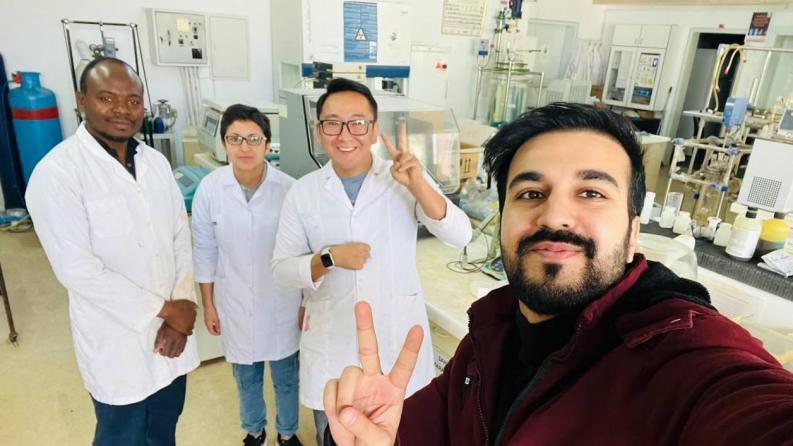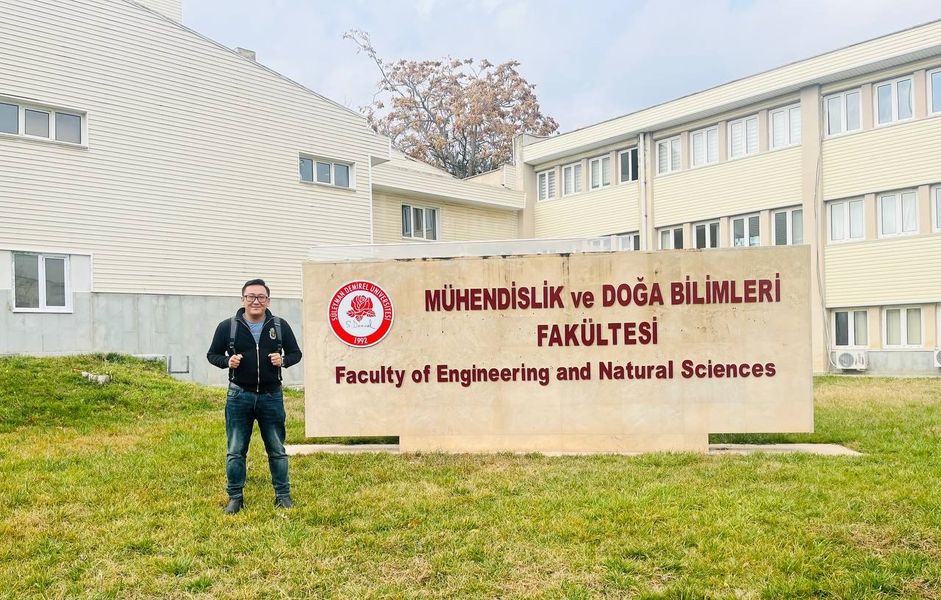Satbayev University’s young scientist studies the process of extracting the metals from solutions together with Suleiman Demirel University’s scientists

Yeric Merkibayev, Satbayev University’s young scientist, made a scientific trip to Turkey to conduct a series of experiments at Suleiman Demirel University together with colleagues on an international project in metallurgy field. The given research on developing the technology for processing poor oxidized ores of non-ferrous metals and tailings of existing enterprises is led by Professor Tatyana Chepushtanova, Head of Department of Metallurgical Processes, Thermal Engineering and Technology of Special Materials and Professor of Suleiman Demirel University Ata Utku Akcil.
Yerik Merkibayev, together with colleagues from Suleiman Demirel University, are conducting the experiments on testing the new extractants such as ACCORGA, concentrating and refining metals from solutions, in order to intensify the process of liquid extraction of copper, nickel and cobalt with the purpose to make the process of extracting metals from solutions more efficient.
Extractant mixtures composition was developed at Department of Metallurgical Processes, Heat Engineering and Technology of Special Materials at Satbayev University. The main result of the research was that the use of sulfur-hydrochloric acid-heptane mixtures increases the extraction of copper by more than 20% compared with existing extractants.
The research is aimed at implementing "gentle metallurgy" principles. The technology is currently undergoing international testing. Research is also being conducted on extracting the nickel from solutions. New technologies for extracting nickel and cobalt using cost-effective, environmentally friendly processes are extremely important for Kazakhstan’s industry. With the development of "clean" technologies, the market for critical metals is growing rapidly. It is customary to call critical those metals that are necessary for industry as part of the energy transition: nickel, cobalt, lithium, copper, aluminum and others. According to the study by International Energy Agency (IEA), over the past five years, the demand for lithium has tripled, for cobalt - by 70%, and for nickel - by 40%. Kazakhstan, in the depths of which 99 out of 118 chemical elements of the periodic table have been identified, can become one of the most important suppliers of critically important metals to world markets.
Suleiman Demirel University laboratory, Professor Ata Utku Akcil, leaves the most vivid impressions, and the joint international collaboration shows that there are no boundaries and no limits to scientific thought in science. The project reflects the desire of young scientists for innovative solutions in the field of extractive metallurgy and environmentally friendly technologies.











